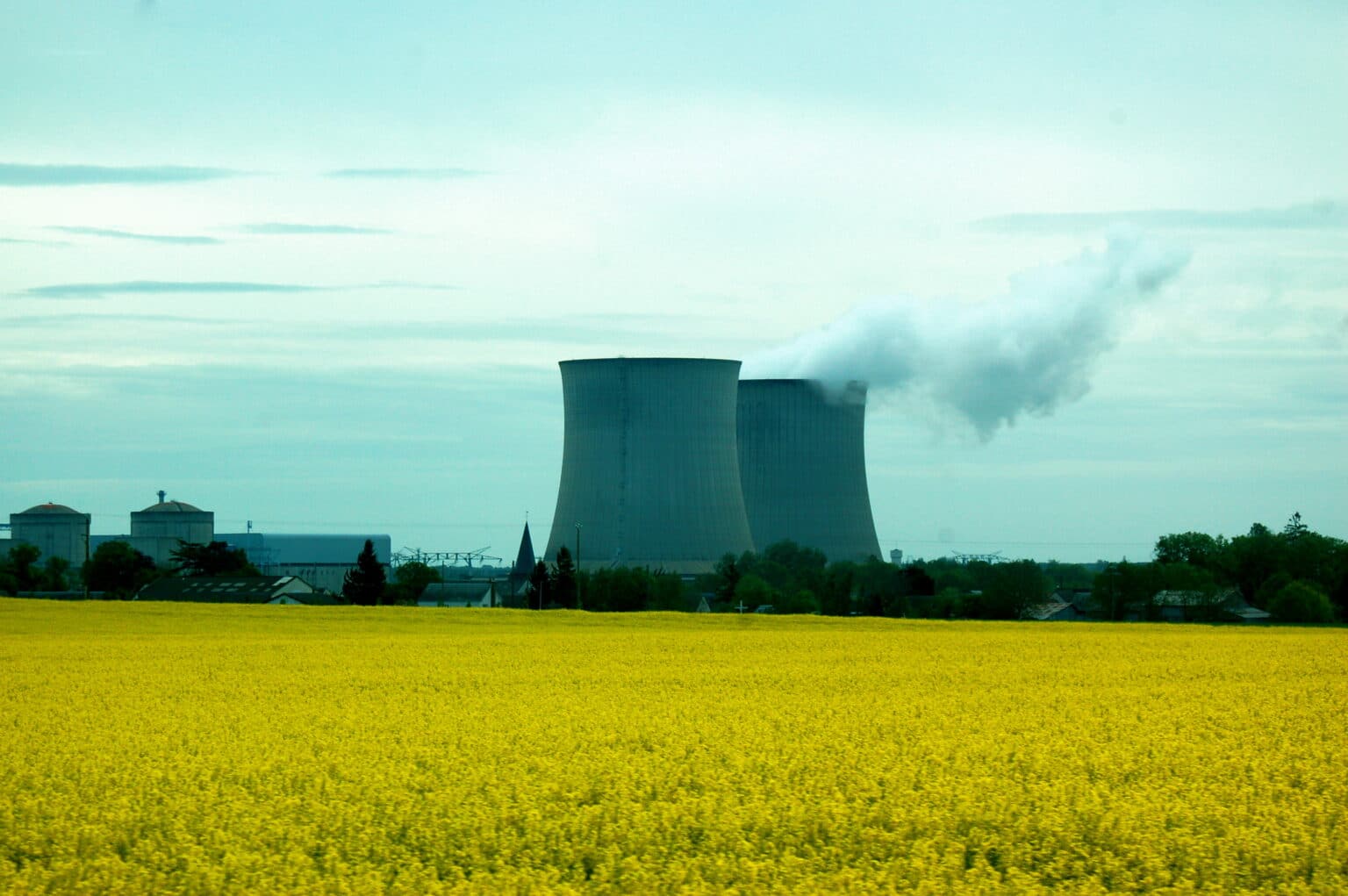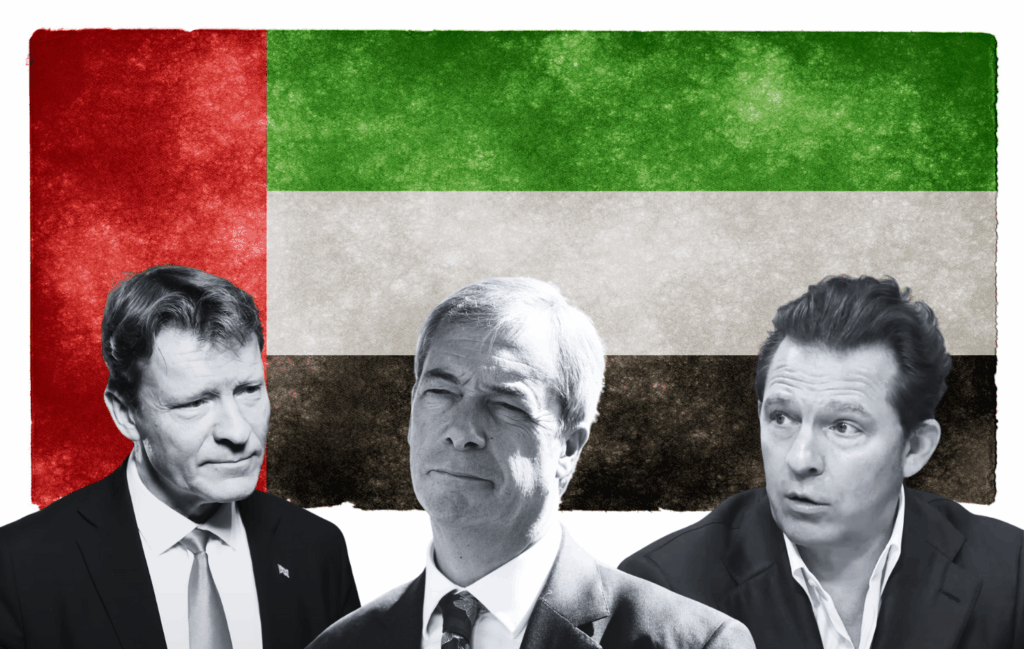The European Union’s scientific and political communities are locked in a battle over whether gas and nuclear can be considered green investments. The latest development in this years-long fight came on Monday, when the European Commission’s scientific expert group, the Platform on Sustainable Finance (PSF), pushed back against including gas and nuclear in the EU taxonomy, an official guide on sustainable investments. The expert group stated that it is “deeply concerned about the environmental impacts that may result.”
In December 2021, after months of lobbying, strong pushback from pro-gas and pro-nuclear supporters, and informal alliances between governments, the Commission asked the Platform on Sustainable Finance to provide feedback on a draft amendment that included gas and nuclear in the taxonomy, thereby recognizing them as sustainable.
In July 2020, the European Union established the EU Taxonomy Regulation, “a classification system establishing a list of environmentally sustainable economic activities.” It’s a “green investment guidebook,” said Henry Eviston, spokesperson on sustainable finance at WWF European Policy Office. In other words, to call an investment “green,” it needs to be taxonomy compliant.
Economic activities comply with the taxonomy if they pass a number of technical screening criteria and meet at least one of six environmental objectives, without harming any of the others: mitigating climate change; adapting to climate change; protecting and sustainably using water and marine resources; transitioning to a circular economy; preventing and controlling pollution; and restoring and protecting biodiversity.
The taxonomy separates activities in three categories: “green” activities, which contribute to one of the environmental objectives “in and of themselves;” “transition” activities, which contribute to the energy transition and for which there are no low-carbon alternatives; and “enabling” activities, for instance, manufacturing a device or part that would help make other activities sustainable. The categories, however, seem to be a mere formality because, “once you’re in the taxonomy, you’re classified as sustainable regardless of what category you’re put into,” Eviston said.
The process of establishing the criteria was “relatively open, relatively transparent until mid 2020,” he explained. “After that, the taxonomy became a huge fight over not what was scientific but the future of certain sources of energy.”
The Push for Gas and Nuclear
Prior to the Platform on Sustainable Finance’s report, in July 2018, the European Commission established a Technical Expert Group (TEG) to develop the taxonomy’s screening criteria. In June 2019, the TEG defined a threshold of 100g CO2e/kWh below which energy-generation technologies can be deemed sustainable. This science-based threshold — considered necessary to achieve emissions targets by 2050 — excluded all fossil fuels from being in the taxonomy.
In January 2021, representatives from the clean energy sector sent a joint letter welcoming the criteria recommended by the TEG and stating that “the inclusion of power generation with a carbon intensity above this limit would not only deviate from science, but would also harm the EU’s decarbonisation trajectory and its 2050 net-zero objectives.”
But this didn’t suit everyone.
Initially, 10 member states, mostly in Eastern and Southern Europe, opposed the TEG’s criteria. On December 18, 2020, the day when the public consultation came to a close, “the gas bloc” — Bulgaria, Croatia, Cyprus, Czechia, Greece, Hungary, Malta, Poland, Romania, and Slovakia — submitted an unofficial document expressing their concerns to the European Commission. It emphasised the need to “recognize the transitional and enabling role of natural gas,” referring to two of the taxonomy’s three categories.
The taxonomy’s “enabling” and “transitional” categories have very specific requirements, which the Commission’s scientific expert group says gas does not satisfy.
But because of the gas bloc’s pushback, “the European commission went back to the drawing table to try to accommodate their demands,” Olivier Vardakoulias, finance and subsidies coordinator at Climate Action Network (CAN) Europe, explained. These demands “were essentially to adjust the technical screening criteria for gas investments to be included in the taxonomy.”
However, the taxonomy legally requires so-called technological neutrality, the equal treatment of every technology. “You cannot create weaker criteria for a certain technology simply because there’s a lobbying push behind it,” Eviston said. “And that is exactly what is happening for fossil gas.”
“The taxonomy became a huge fight over not what was scientific but the future of certain sources of energy.”
Henry Eviston, WWF European Policy Office
A similar pattern has played out with nuclear energy as well. Although it complies with the 100g CO2e/kWh emissions threshold screening criteria, it must also meet the “do no significant harm” principle, meaning that it substantially contributes to at least one of the six environmental objectives without harming any other objective. Many — including the Platform on Sustainable Finance — say that’s where it falls short.
In March 2020, an official document stated that the TEG has “not recommended the inclusion of nuclear energy in the Taxonomy at this stage” primarily because the waste created by nuclear energy does not comply with the “do no significant harm” principle.
Like with natural gas, pro-nuclear companies and lobbies started to pressure the Commission to change its stance. Between March and July 2020, nuclear lobbies met with EU representatives twice as often as they did in 2018, according to the non-governmental organization Reclaim Finance.
In response, the European Commission asked its Joint Research Centre (JRC) to assess the absence of significant environmental harm from nuclear power. In March 2021, the JRC issued a report of its findings, and stated that it didn’t find any evidence that nuclear energy “does more harm to human health or to the environment” than other energy technologies included in the taxonomy. The taxonomy’s website states that the report “aims to provide evidence-based scientific support to the European policymaking process.”
But opponents of nuclear energy questioned the independence of the report. “We’re very concerned because the JRC has very strong links with the nuclear industry. The Commission should have known better,” said Ariadna Rodrigo, a campaigner with Greenpeace European Unit.
According to a Greenpeace briefing, the JRC receives funding from the Research and Training Programme of the European Atomic Energy Community (Euratom), founded in 1958 to develop a European common market for atomic energy. Between 2021 and 2025, Euratom agreed to provide 532 million euros to the JRC. The briefing also states that the nuclear lobby Foratom is a JRC partner for “training and recruitment structures, technology platforms and joint events.”
1/2 FORATOM statement on the EU #taxonomy leak:
— FORATOM (@FORATOM_nuclear) January 4, 2022
"We welcome the fact that the Commission has come forward with a proposal to include nuclear under the taxonomy. The industry is currently reviewing the conditions of this leaked text in order to identify its impact on the sector."
Eviston agrees that the JRC’s report is problematic, not only because of the group’s links to the nuclear lobby but also because “there is no conclusive evidence today that there is a solution for the issue of highly radioactive waste, and this, in our view, violates the [taxonomy’s] requirement for conclusive, scientific evidence and the precautionary principle.”
Attempts to influence the taxonomy process have been widespread, according to research from several groups. Reclaim Finance investigated how gas and nuclear lobbies are trying to influence the taxonomy. The group found that at least 189 lobbyists devoted up to 87 million euros a year to lobbying EU institutions, and that EU officials held an average of 2.36 meetings per week with gas and nuclear players between January 2018 and July 7, 2020. The frequency of these meetings increased to 2.86 times a week between March and July 2020, after the TEG’s final report was published.
Major fossil fuel companies, including BP, Total and Equinor, also made a direct plea for “a more lenient approach to gas” in a November 2020 letter, according to a report from InfluenceMap. In a separate report, InfluenceMap found that only a small number of the 50 largest financial groups in Europe have “actively and transparently” supported the taxonomy.
‘An Unholy Alliance’
The taxonomy is under assault to include gas and nuclear not only from those industries and their respective lobbies but also from a newly formed unofficial alliance between EU member states. Governments, it turns out, are just as involved as nuclear and gas lobbies.
France — whose energy mix is largely based on nuclear — has been fighting “tooth and nail,” Vardakoulias said, for nuclear energy to be included in the taxonomy. And what has developed is a so-called “gas for nuclear swap” in which pro-nuclear governments and pro-gas governments are coming together to push their interests.
“What we’ve seen over the past months is that France drifted towards the pro-gas position, although France has absolutely no national stake in gas,” Vardakoulias said, “and an unholy alliance has formed. France, as a big member state, promised its support on gas to many European countries — who don’t necessarily have nuclear plans, by the way — in exchange for their support on nuclear.”
In a statement, Pierre Cannet, director of advocacy and campaigns at WWF France, called this an “attempt to greenwash fossil gas for so-called national interests” and “a triple betrayal” of science, the taxonomy’s goals, and increasing support from investors and financial institutions to exclude gas from the regulation.
The “gas for nuclear swap” isn’t only limited to France. “The Greek prime minister came out and said that we support nuclear in the taxonomy when Greece has never had any connection whatsoever to nuclear, but it does want gas,” Vardakoulias said. “I think that’s the typical example of that political exchange that went on.” Similar dynamics have played out in other EU countries, like Italy, where nuclear has long been excluded from the political debate after a clear-cut referendum in 2011 and only recently has started appearing in some politicians’ public declarations again. Like Greece, Italy has a huge stake in gas.
The #EUTaxonomy should stamp out greenwashing, not help it! Nuclear and fossil gas are not green. @vonderleyen, you must exclude these technologies from the taxonomy.
— Greenpeace (@Greenpeace) December 20, 2021
Send your own message and call on the EU to #StopFakeGreen!
👉👉👉 https://t.co/CFkIaM1JNk#MoneyForChange pic.twitter.com/JhoUg5U6cr
All this pressure from pro-gas and pro-nuclear companies, lobbies, and governments appears to have worked. On December 31, 2021 — “a time where nobody was watching,” the European Consumer Organisation stated — the commission published a draft of revisions to the taxonomy. It proposed technical screening criteria for economic activities in the energy sector, including gas and nuclear.
Foratom, “the voice of the European Nuclear Industry” and pro-nuclear factions allied with pro-gas countries, welcomed the decision to weaken criteria for nuclear to be included in the taxonomy, according to information obtained by Greenpeace EU Unit and shared with DeSmog. Austria, Spain, Denmark, and Luxembourg, whose governments have been vocal on multiple occasions against both gas and nuclear, unconditionally rejected including nuclear energy. Germany also strongly opposed nuclear, but has not resisted the inclusion of gas, which makes up part of the country’s energy mix.
It Pays to Be Green
The taxonomy does not regulate which investments are and aren’t allowed. It only indicates which investments are considered sustainable.
“When you go into a shop and you buy a fridge or a washing machine, you have a label that tells you about the performance. You can still buy a fridge that’s really bad, or really inefficient, that’s up to you. But at least you want that label to give you accurate information,” Eviston explained, “otherwise you’re making purchases – or investments, in the case of the taxonomy – on the basis of flawed information.”
So why are certain governments and lobbies pushing so hard to have gas and nuclear energy included in the taxonomy?
Perhaps unsurprisingly, the answer often comes down to money: If you’re not green, investors aren’t interested.
An InfluenceMap report found that European companies that support regulating CO2 emissions do better in the stock market than companies that oppose these policies. This suggests that investors are increasingly backing companies with business strategies clearly aligned with the Paris Agreement and the EU’s net-zero climate ambitions. And some are even calling for it openly: In January, the Institutional Investors Group on Climate Change, whose members represent 50 trillion euros in assets, sent an open letter to EU politicians, calling for gas to be excluded from the taxonomy.
IIGCC has published an open letter calling for gas to be excluded from the EU #taxonomy. "The inclusion of gas would undermine the credibility of the taxonomy as well as the EU’s commitment to climate neutrality by 2050" says Stephanie Pfeifer, IIGCC CEO. https://t.co/Vx6I2OiuhN pic.twitter.com/DoYcWIHqeF
— IIGCC (@IIGCCnews) January 12, 2022
The fossil fuel industry has invested a huge amount of time and energy into framing gas as transitional, so that “policymakers will accept the idea that gas is a stepping stone away from coal and towards renewables,” Eviston said. “In other words, the fossil fuel industry has positioned itself as part of the solution and not part of the problem.” Excluding gas from the taxonomy undermines that carefully cultivated image and has the potential to frighten off investors.
Nuclear’s motivation for being included in the taxonomy is different. On January 17, S&P Global issued a research update warning that the credit rating for Electricité de France (EDF), a French multinational utility company with 56 active nuclear reactors in France, might be lowered due to prolonged outages and demands on production from the government.
This problem isn’t isolated to EDF; the nuclear industry as a whole is “unable to prevent cost overrun, to prevent delays, and to address a number of questions, including social acceptability,” said Eviston. “This is an industry which is in grave trouble. It is clinging onto any lifeline it can get.” And including it in the taxonomy will attract more investment.
Vladis Dombrovskis, the European Commission vice-president in charge of the economy, said the taxonomy “sorts green from greenwash.” Except that it won’t if it lets in gas and nuclear.
“Because now it is being greenwashed, there is a very clear risk for the taxonomy to stop being any kind of international standard setter,” Vardakoulias said. “It’s not just that we allow [gas and nuclear] to happen, it’s that we want to baptize them as sustainable as well.”
“There is a very clear risk for the taxonomy to stop being any kind of international standard setter.”
Olivier Vardakoulias, CAN Europe
The fight over nuclear and gas hasn’t yet reached its final round. The taxonomy amendment — including the Platform’s new report — will be scrutinized by the European Parliament and the Council in the next four months. But there may be a legal battle too.
In October 2021, lawyers at the nonprofit ClientEarth called on the European Commission to exclude gas from the taxonomy and warned that including it would be “unlawful” because it would contradict other EU laws, including the Paris Agreement and European Climate Law, which commits to reducing CO2 by 55 percent by 2030 and a climate-neutral Europe by 2050.
The political arm wrestle over the taxonomy confirms one thing: All obstacles to climate action have to do with economic and political interests, not science or technology, and especially not with the lack of grassroots mobilization, considering the uproar from environmental organizations and climate movements on the inclusion of gas and nuclear in the taxonomy.
Scientific experts have reiterated what they have been saying since the beginning: gas and nuclear have no place in the taxonomy. And climate scientists have been warning global leaders about the risks of climate change and inaction for decades. Even investors know that the fossil fuel economy, based on environmental exploitation, isn’t convenient anymore.
“The Platform’s report is another warning bell that neither fossil gas nor nuclear power must enter the EU green taxonomy,” Sebastien Godinot, Senior Economist of WWF European Policy Office, said in a statement. “The Commission needs to listen to the science and abandon its proposal to greenwash gas and nuclear.”
Subscribe to our newsletter
Stay up to date with DeSmog news and alerts






